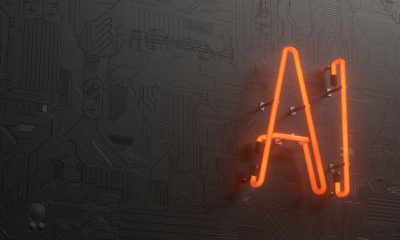ANALYSIS – France’s Le Pen writes his way back into script
Mon Mar 15, 2010 9:54pm
By Crispian Balmer
PARIS (Reuters) – Far-right leader Jean-Marie Le Pen, playing on fears over the spread of Islam, has regained the political initiative in France with a strong result in regional elections that poses a problem for President Nicolas Sarkozy.
Bouncing back from a string of recent reversals, Le Pen’s National Front won a surprise 11.74 percent of the national vote in Sunday’s first round ballot and will dilute support for Sarkozy’s conservative block in crucial run-offs on March 21.
Aged 81, Le Pen himself enjoyed a remarkable personal triumph, winning 20.29 percent backing in the southern French Provence-Cote d’Azur region, which has absorbed hundreds of thousands of mainly North African immigrants in recent decades.
His daughter Marine Le Pen also scored well, securing 18.31 percent support in the far north of France, where worries over industrial decline helped her cause amongst the working class.
“We are once again at the centre of the political game,” said Marine Le Pen, looking both delighted and relieved.
The party still faces myriad problems, ranging from mass defections to disastrous finances, but at least for now, rivals will have to stop writing its obituary and instead come up with fresh ways to counter its renewed appeal.
OPENING PANDORA’S BOX
Opponents said low turnout on Sunday penalised the mainstream right but the result was significantly better than recent elections. The National Front took just 6.34 percent in last year’s European parliamentary election and 4.29 percent in a 2007 ballot for the National Assembly.
Only last month, encouraged by opinion polls pointing to another poor showing by Le Pen in the regional vote, Immigration Minister Eric Besson described the National Front as a “bogeyman that no longer exists”.
Sarkozy himself believed he had managed to neutralise the National Front in 2007 by offering tough solutions of his own to its two main obsessions — immigration and security.
However, a government move in 2009 to organise a broad debate on national identity rekindled interest in the far right by reviving controversies over how to deal with immigrants and Islam in a country that has Europe’s largest Muslim population.
“The debate on national identity brought back to the fore themes that were favourable to the National Front … and proved counter productive for the ruling party,” said Henri Rey, head of research at the Sciences Po political science institute.
Le Pen, who has said the regional vote will be his last election campaign, proved astute at leveraging concerns over radical Islam, plastering billboards with a poster showing France covered by an Algerian flag, a veiled woman and minarets.
“No to Islamism,” read the slogan.
The Algerian government protested and a court ruled the posters to be racist and ordered their removal, guaranteeing plenty of free publicity for the cash-strapped National Front.
“Are we or are we not free and sovereign, or are we at the beck and call of the Algerian government?” said Marine Le Pen.
Her father clutched the banned poster to his chest when he went on primetime television on Sunday to vaunt the vote outcome, depicting himself as a victim of the system.
“The National Front, which people said was beaten, dead and buried by the president, has shown that it is still a national force, and probably getting bigger,” said Le Pen, who shocked the world when came second in France’s 2002 presidential vote.
However, Sunday’s result does not resolve all the party’s problems. Previous election defeats drained the National Front coffers, limiting its resources and forcing it to quit its prestigious headquarters near Paris to much more modest offices.
There are also unresolved leadership problems, with Le Pen expected to hand over the baton to his daughter ahead of 2012 in a move that has sparked accusations of nepotism and encouraged some party faithful to jump ship and create their own movements.
“The party isn’t dead, but it is still very weak because of its leadership problems,” said Rey from the Sciences Po, adding that it was far too soon to say whether the party would manage to upset the next presidential election, as it did in 2002.
“The 2012 presidential election is a totally different type of election and we can’t say what the economic situation will be like. Totally different issues will be at play,” he said.
(Editing by Charles Dick)






















